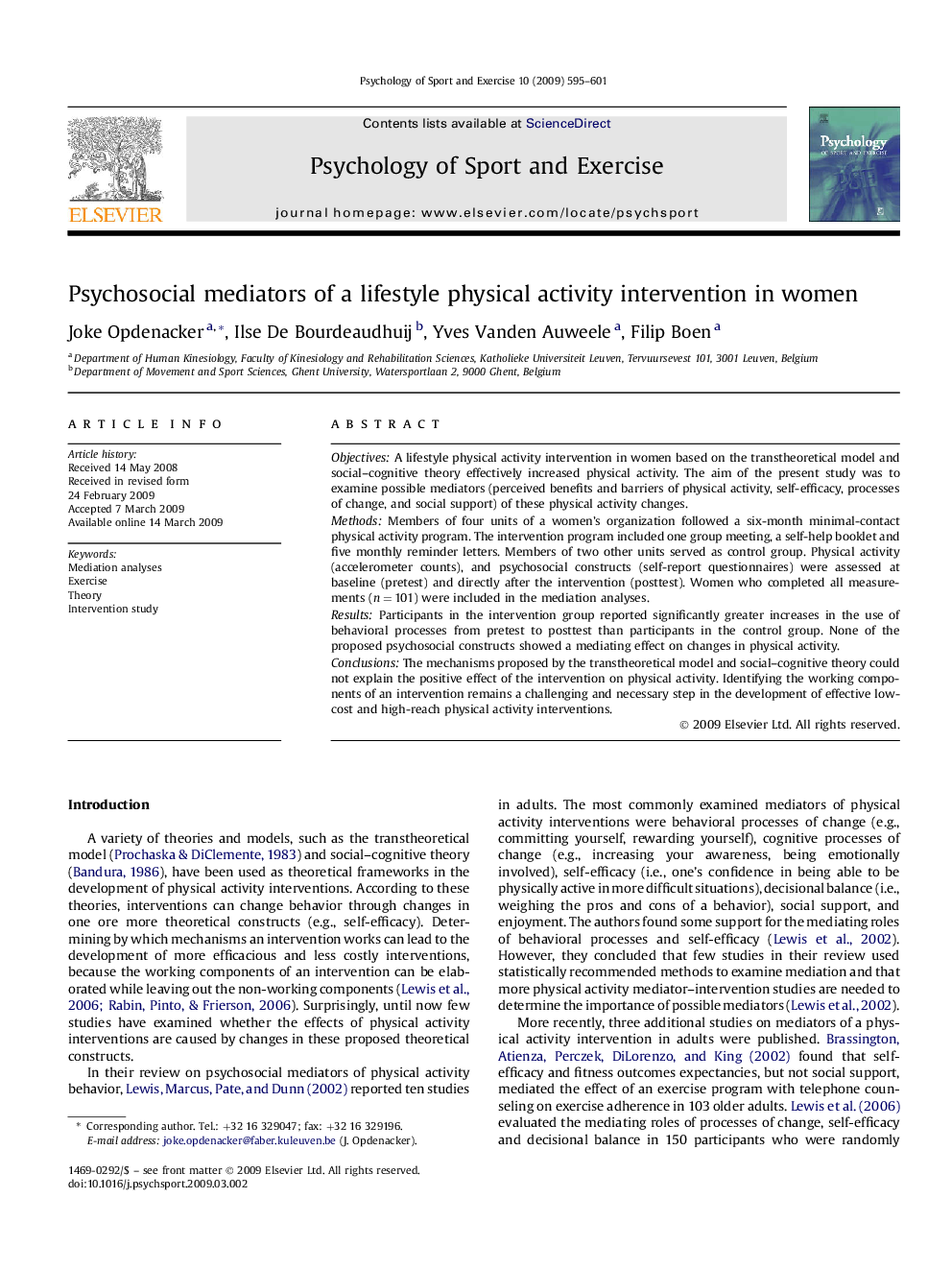| Article ID | Journal | Published Year | Pages | File Type |
|---|---|---|---|---|
| 894772 | Psychology of Sport and Exercise | 2009 | 7 Pages |
ObjectivesA lifestyle physical activity intervention in women based on the transtheoretical model and social–cognitive theory effectively increased physical activity. The aim of the present study was to examine possible mediators (perceived benefits and barriers of physical activity, self-efficacy, processes of change, and social support) of these physical activity changes.MethodsMembers of four units of a women's organization followed a six-month minimal-contact physical activity program. The intervention program included one group meeting, a self-help booklet and five monthly reminder letters. Members of two other units served as control group. Physical activity (accelerometer counts), and psychosocial constructs (self-report questionnaires) were assessed at baseline (pretest) and directly after the intervention (posttest). Women who completed all measurements (n = 101) were included in the mediation analyses.ResultsParticipants in the intervention group reported significantly greater increases in the use of behavioral processes from pretest to posttest than participants in the control group. None of the proposed psychosocial constructs showed a mediating effect on changes in physical activity.ConclusionsThe mechanisms proposed by the transtheoretical model and social–cognitive theory could not explain the positive effect of the intervention on physical activity. Identifying the working components of an intervention remains a challenging and necessary step in the development of effective low-cost and high-reach physical activity interventions.
